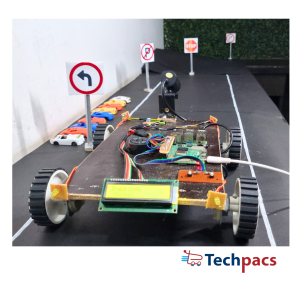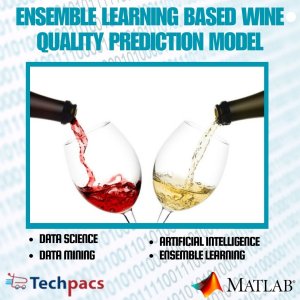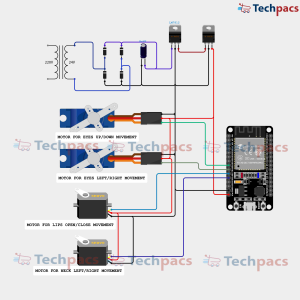Optimizing Business Strategies Through Novel Sales Prediction with Hybrid Regression Models
Problem Definition
The current landscape of sales prediction models reveals a variety of limitations that hamper their overall effectiveness in delivering accurate and timely predictions. The foremost concern lies in the high execution time of these models, which not only hinders operational efficiency but also poses challenges in achieving real-time predictions. Additionally, the prevalent use of regression-based models for sales prediction, while providing marginally good outcomes compared to classification algorithms, may not be sufficient in capturing the complexity of sales data. Single regression classifiers can lead to low accuracy rates, signaling a need for more sophisticated and robust predictive techniques in this domain. These limitations underscore the pressing necessity for an innovative approach to sales prediction that can address the inherent problems and pain points inherent in the current models.
Objective
The objective is to develop a new hybrid regression approach using RandomForest and Gradient Boosting techniques to improve accuracy and reduce execution time in sales prediction models. The goal is to address the limitations of existing models by capturing complex patterns in sales data and providing more accurate real-time predictions. The approach involves pre-processing the data, training RF and GB models separately, and assigning a weightage to reconcile differences in performance.
Proposed Work
To address the limitations of existing sales prediction models, a new hybrid regression approach using RandomForest (RF) and Gradient Boosting (GB) techniques is proposed with the goal of improving accuracy and reducing execution time. The decision to use RF and GB was based on their ability to capture complex patterns in the sales data samples and their potential for accurate predictions. The approach involves pre-processing the sales dataset obtained from kaggle.com, handling null values through mean imputation, removing unnecessary whitespaces and punctuations, and converting string variables into numerical representations using level encoder. The processed data is then split into training and testing subsets, where RF and GB models are trained separately.
It was observed that RF consistently outperformed GB in accuracy, but a weightage of 0.9 to RF and 0.1 to GB was assigned to reconcile the differences and improve prediction performance. This hybrid regression model aims to provide more accurate real-time sales predictions compared to traditional models.
Application Area for Industry
This project can be beneficial across various industrial sectors such as retail, e-commerce, consumer goods, and manufacturing. The proposed hybrid regression model based on Random Forest and Gradient Boosting techniques can help in predicting sales more accurately and efficiently. By addressing the challenges of high execution time and low accuracy rates associated with conventional sales prediction models, this project provides industries with a reliable solution for making real-time predictions and optimizing their sales strategies. The use of RF and GB regression techniques allows for capturing intricate details and patterns in sales data, leading to more accurate predictions and better decision-making processes. Implementing this model can result in improved operational efficiency, increased sales revenue, and overall enhanced performance for businesses in various industries.
Application Area for Academics
The proposed project on sales prediction using a hybrid regression model has the potential to enrich academic research, education, and training in various ways. Firstly, by addressing the drawbacks of existing sales prediction models, this project contributes to advancing research in the field of predictive analytics and machine learning. It introduces a novel approach that combines Random Forest (RF) and Gradient Boosting (GB) regression techniques, providing insights into the effectiveness of hybrid models in improving prediction accuracy.
In an educational setting, this project can be used to teach students about advanced machine learning algorithms and their applications in real-world scenarios such as sales forecasting. By working on the model development process, students can gain hands-on experience in data preprocessing, model selection, and evaluation, enhancing their practical skills in data analysis and predictive modeling.
Moreover, the code and literature of this project can serve as valuable resources for researchers, MTech students, and PHD scholars working in the domain of sales prediction and machine learning. They can leverage the implemented algorithms (Linear, Polynomial, Ridge, XGboost, Hybrid) and techniques to explore new research avenues, conduct comparative studies, and enhance the predictive capabilities of their models.
Future scope of this project includes expanding the dataset to include more features, experimenting with different regression algorithms, and integrating more advanced optimization techniques for further improving the prediction accuracy. Additionally, the project can be extended to explore the application of ensemble learning methods and deep learning algorithms for sales prediction, opening up possibilities for innovative research and development in the field.
Algorithms Used
Linear Regression is a simple and commonly used algorithm that predicts a continuous output based on linear relationship between input variables and target variable. It is used in this project to establish a baseline prediction model and provide a benchmark for comparison.
Polynomial Regression is an extension of linear regression that can capture non-linear relationships between variables by introducing polynomial terms. It helps in capturing more complex patterns in the data and improving prediction accuracy.
Ridge Regression is a regularization technique that is used to prevent overfitting by adding a penalty term to the linear regression cost function.
It helps in reducing the complexity of the model and improving generalization performance.
XGboost (Extreme Gradient Boosting) is an ensemble learning algorithm that combines the predictions of multiple weak learners (decision trees) to create a strong prediction model. It is known for its speed and performance, making it suitable for handling complex datasets and achieving high accuracy.
Hybrid Regression is a novel approach proposed in this project that combines Random Forest and Gradient Boosting regression techniques. By assigning different weights to each model based on their individual performance, it aims to leverage the strengths of both models and achieve more accurate predictions.
Keywords
SEO-optimized keywords: sales prediction, regression analysis, machine learning, predictive modeling, sales forecasting, retail analytics, big data analytics, regression algorithms, sales trend analysis, demand prediction, regression techniques, retail industry, predictive analytics, sales optimization, sales performance analysis, RF regression, Gradient Boosting regression, regression models, hybrid regression approach, kaggle dataset, mean imputation, level encoder, data pre-processing, training data, testing data, accuracy rates, real-time predictions, computational overhead, sales data samples, decision trees, null values handling, weightage assignment, retail sales, operational efficiency.
SEO Tags
sales prediction, regression analysis, machine learning, predictive modeling, sales forecasting, retail analytics, big data analytics, regression algorithms, sales trend analysis, demand prediction, regression techniques, retail industry, predictive analytics, sales optimization, sales performance analysis, RF regression, Gradient Boosting regression, hybrid regression model, sales dataset, kaggle dataset, mean imputation, level encoder, training data, testing data, decision trees, weak regression models, complex patterns, relationship modeling.
| Shipping Cost |
|
No reviews found!



















































No comments found for this product. Be the first to comment!